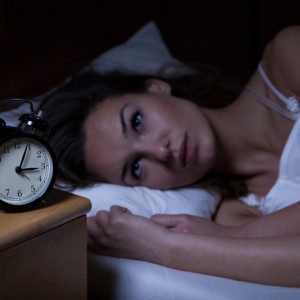
Insomnia: Can’t Get to Sleep? Can’t Stay Asleep?
What is insomnia?
Insomnia typically refers to an inability to fall or remain asleep. This causes problems for people during the day, as they may feel drowsy and have less energy, focus, and concentration. If you suffer from sleep difficulties, there are well-researched natural treatments that help.
Signs and Symptoms of Insomnia
Aside from the obvious inability to sleep, these are insomnia symptoms:
- unable to fall or stay asleep
- don’t feel refreshed on waking
- feel tired/sleepy during the day
- feel worried or anxious about sleep, or lack thereof
- loss of concentration
- tossing and turning
- light, unrefreshing sleep
- waking during the night, may or may not have difficulty going back to sleep (sleep maintenance insomnia)
What Causes Insomnia?
There are many possible causes of insomnia, here are some of the aspects to consider:
- Stress or anxiety
- Unstable blood sugar or hypoglycemia
- Poor adrenal gland function, or more correctly HPA axis dysfunction
- Imbalanced sympathetic/parasympathetic nervous system activity
- Vitamin/mineral deficiencies
- Stimulating evening activity (bright lights, vigorous exercise, video games, TV/movies, caffeine/sugar intake)
- Poor conditions for sleep (light, noise, temperature)
- Poor sleep habits (lack of routine, daytime napping, sleeping in)
- Hormone imbalances
- Neurotransmitter imbalances
Natural Treatment for Insomnia
Our naturopathic doctor will put together a customized plan to treat your insomnia naturally.
- Diet modifications – don’t eat/drink or take anything stimulating prior to going to bed (eg caffeine, sugar, carbohydrates as they quickly turn to sugar, some botanicals like ginseng)
- Acupuncture – acupuncture can help rebalance the nervous system, calm anxiety and relieve stress
- Vitamins, minerals – darkness, vitamin B6, tryptophan and magnesium are crucial for healthy neurotransmitter (including melatonin) production.
- Botanicals – herbs can be used to calm the nervous system, balance hormones, relieve stress and anxiety, balance blood sugar and help you get to sleep and stay asleep
- Psychotherapy- if stress or anxiety is the source of your insomnia, psychotherapy may help address these issues
- Exercise – burning off your physical energy reserves during the day can make for better sleep at night. Try to exercise before 6 p.m. though, so that your post-exercise energy burst wears off before bedtime.
By Dr. Pamela Frank, Naturopathic Doctor, updated Feb. 13, 2022
Natural Treatment for Insomnia: Research
This is just a sample of the research supporting the use of naturopathic medicine techniques like herbs and acupuncture to treat insomnia:
Melissa officinalis:
Cases J, Ibarra A, Feuillere N, Roller M, Sukkar SG. Pilot trial of Melissa officinalis L. leaf extract in the treatment of volunteers suffering from mild-to-moderate anxiety disorders and sleep
disturbances. Med J Nutrition Metab. 2011; 4(3):211-218.
● Standardized Melissa officinalis extract was associated with a reduction in anxiety, amelioration of anxiety-associated symptoms, and decreased insomnia. As much as 95% of subjects responded to treatment.
Acupuncture:
Zheng XN1, Wu XF1, Guo X1, Xie LN1, Xie ZQ1, Wei XR1, Liu L1, Chen XL1, Yue ZH1 Manual Acupuncture Stimulation of Paired Acupoints Can Relieve Sleep Disorder Possibly by Upregulating Pineal Melatonin Protein and Its Receptor mRNA Levels in the Suprachiasmatic Nucleus in Insomnia Rats.
Zhen Ci Yan Jiu. 2018 Jun 25;43(6):360-4. doi: 10.13702/j.1000-0607.170409.
Valerian:
Fernandez-San-Martin MI, Masa-Font R, Palacios-Soler L, Sancho-Gomez P, Calbo-Caldentey C,
Flores-Mateo G. Effectiveness of Valerian on insomnia: a meta-analysis of randomized
placebo-controlled trials. Sleep Med. 2010; 11(6):505-11.
● Subjective improvement in insomnia (scale questionnaires) on valerian
Liu L, Liu C, Wang Y, Wang P, Li Y, Li B. Herbal Medicine for Anxiety, Depression, and Insomnia. Curr Neuropharmacol. 2015;13(4):481-93.
Music:
Jespersen K, Koenig J, Jennum P, Vuust P. Music for insomnia in adults. Cochrane Database for
Systematic Reviews. 2015; DOI:10.1002/14651858.CD010459.pub2.
● Six studies (total of 314 participants) compared the effects of listening to music (25-60 mins, for a period of 3 days to 5 weeks) alone or with standard care to standard care alone or no treatment. The results find that music may be effective at improving sleep quality.
Acupuncture:
Acupuncture was found to be more effective in increasing sleep quality and daytime functioning as compared to sham acupuncture and estazolam administration. Source: Evid Based Complement Alternat Med, 2013 Sept 13.
Medication Side Effects:
Beta-blockers were found to suppress nighttime melatonin secretion, which could be the reason insomnia is a common side effect. Source: Complementary Prescriptions Journal, Vol.27, Issue 3, Feb 2013.